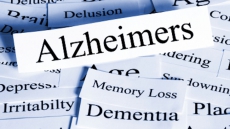Ayurveda states that good health begins with digestion. Maintaining good digestion is very important for overall health and well-being. Here are seven do's for better digestion recommended by Dr Mickey Mehta, Holistic Health Expert.
Food is fuel. Fuel for the body equals nourishment, healing and balance. It equals fitness and a fit body is a creative, productive and long-lasting body. Ayurveda emphasizes the importance of consuming foods that are warm, freshly cooked and easily digestible. Incorporate foods that are high in fibre. Consume plenty of fruits, vegetables, whole grains, legumes, nuts and seeds daily. Fibre helps to regulate bowel movements and promotes digestive health.
The addition of spices and herbs is great for digestion. Ayurvedic herbs like Triphala are often used to support digestion and cleanse the gastrointestinal tract. Spice-like ginger is known for its digestive properties. Ginger can be consumed in various forms such as fresh ginger tea or can be added to meals. Cumin, Coriander, and Fennel Tea (CCF Tea) are commonly used in Ayurveda to help digestion and alleviate bloating and gas.
Consume foods rich in probiotics, such as yoghurt, homemade pickles, buttermilk, rice kanji and other fermented foods. Probiotics help maintain a healthy balance of gut bacteria, which is important for proper digestion. Certain foods can trigger digestive discomfort. Often spicy foods, caffeine and certain types of dairy can cause digestive discomfort. It is better to limit the consumption of such foods. Avoid heavy and fried foods. Minimize the intake of processed, packaged, preserved, bottled and high-fat foods, as they can be harder to digest and may lead to digestive discomfort. Instead of large and heavy meals, eat smaller meals throughout the day. This can help prevent overloading the digestive system and therefore, prevent bloating and indigestion.
Eat consciously while being present in the moment consuming meals. Ensure breathing in and breathing out, and have a relaxed eating pace. Eating in a calm, relaxed environment can help improve digestion too. Chew your food slowly and thoroughly. This helps in the breakdown of food particles and promotes better digestion in the stomach and intestines.
Drink an adequate amount of water throughout the day. Water helps in the digestion and absorption of nutrients, as well as the movement of food through the digestive tract. Ayurveda suggests drinking warm water throughout the day to help digestion and cleansing.
Regular physical activity is also necessary to promote healthy digestion. Optimal movement therapy helps stimulate bowel movements and reduces the risk of constipation. Certain yoga postures and breathing exercises stimulate the abdominal organs which promote relaxation and ultimately better digestion—Asanas like Pavanamuktasana (wind-relieving pose) and Bhujangasana (cobra pose) help. Pranayama like Nadi Shodhana (alternate nostril breathing) can also help balance the digestive system. Massaging the abdomen in a clockwise direction with warm sesame oil can be particularly beneficial for digestion. This improves circulation and calms the nervous system, thereby stimulating digestion. Panchakarma therapies such as Virechana (therapeutic purgation) and Basti (medicated enema) are used for cleansing the body and balancing the doshas, which indirectly support digestive health.
Lastly, follow the circadian rhythm and eat and sleep at regular times. This discipline and pattern are very important for healthy digestion. Consistency helps to regulate the digestive processes and promote better gut health.
Good, easy-to-digest foods lead to creative thinking, give you courage, can beat stress, bring in confidence and create harmony between the body, mind and spirit.




.jpg)

